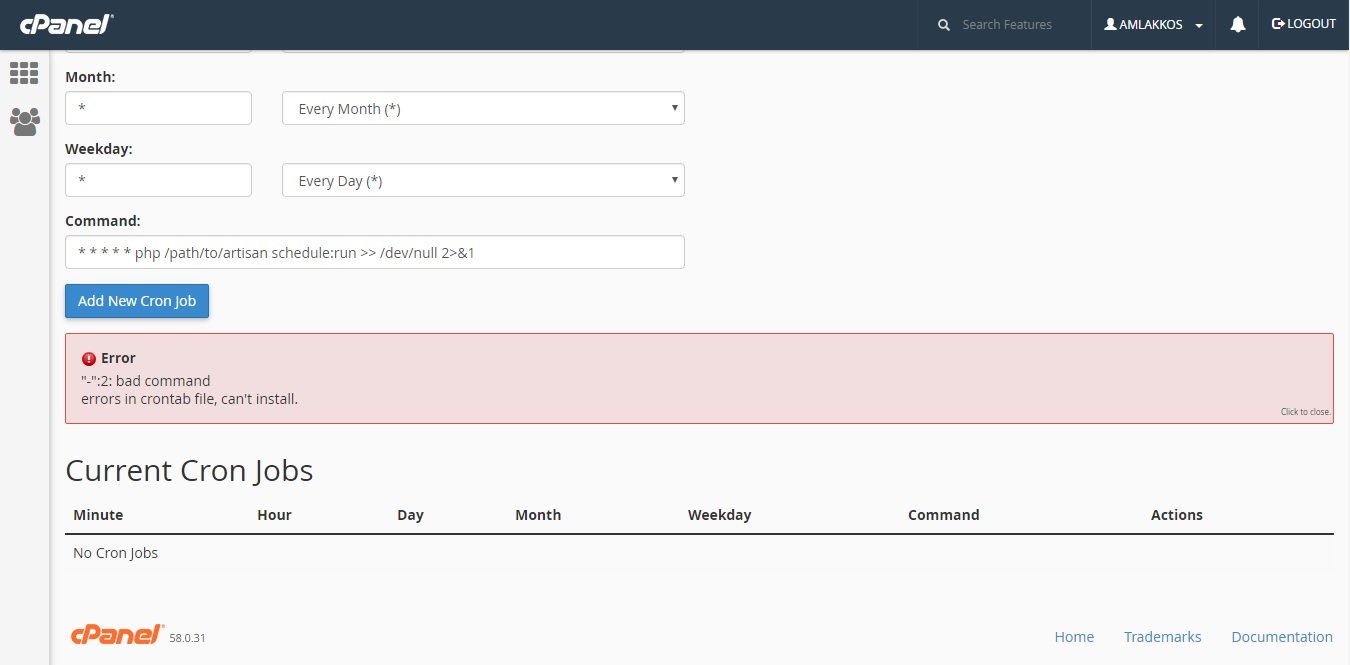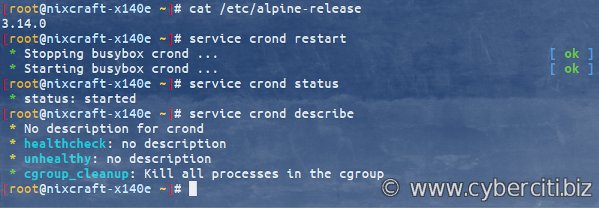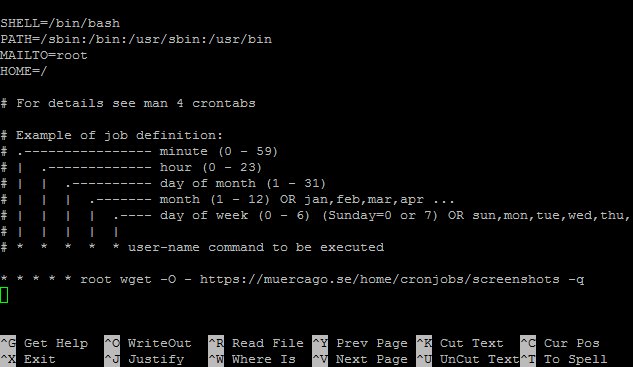Looking to run a cron job every 4 hours? You’re in luck! In this article, we’ll delve into the details of scheduling a cron job to execute commands or scripts at regular intervals throughout the day. Whether you need to automate tasks, analyze data, or perform routine maintenance, a cron job every 4 hours can save you time and effort. Let’s dive in and explore how you can set up and manage this recurring task effortlessly. So, if you’re ready to streamline your workflow and boost productivity, keep reading!
Cron Job Every 4 Hours: An Essential Guide
Cron is a time-based job scheduler in Unix-like operating systems, used to automate repetitive tasks. One of the most common requirements is to run a cron job every 4 hours. In this comprehensive guide, we will explore the concept of cron jobs, understand how to set up a cron job that runs every 4 hours, and discuss various use cases and best practices. So, let’s dive in and unlock the power of cron job scheduling!
Understanding Cron Jobs
Before we delve into the specifics of setting up a cron job that runs every 4 hours, let’s first understand what cron jobs are and how they work.
A cron job is a command or script that gets executed automatically at predefined intervals. These jobs are scheduled using the cron daemon, a background service that runs on Unix-like systems. The cron daemon reads the crontab (cron table) file, which contains a list of commands and the schedule at which they should be executed.
Each cron job has a defined schedule based on five parameters:
- Minute (0 – 59)
- Hour (0 – 23)
- Day of the month (1 – 31)
- Month (1 – 12)
- Day of the week (0 – 7)
Using these parameters, you can schedule a cron job to run at any desired frequency, such as every minute, every hour, or as we’re focusing on in this guide, every 4 hours.
Setting Up a Cron Job That Runs Every 4 Hours
Now let’s get down to the nitty-gritty of setting up a cron job that runs every 4 hours. The syntax for defining a cron job in the crontab file is as follows:
0 */4 * * * command_to_be_executed
Breaking down the syntax:
0: Represents the minute at which the cron job should execute (in this case, at the start of every hour).*: Represents any value. In this position, it indicates that the job can run on any hour, day, or month./4: Specifies that the cron job should run every 4 hours.*: Represents any value. In this position, it indicates that the cron job can run on any day of the week.*: Represents any value. In this position, it indicates that the cron job can run in any month.command_to_be_executed: Specifies the command or script that needs to be executed.
By using this syntax, you can easily set up a cron job that runs every 4 hours and executes the desired command or script.
Example:
Let’s say you want to run a backup script every 4 hours. You can define the cron job in the crontab file as follows:
0 */4 * * * /path/to/backup-script.sh
This configuration will execute the backup script at 00:00, 04:00, 08:00, 12:00, 16:00, and 20:00 every day.
Use Cases for Cron Jobs Every 4 Hours
Now that we know how to set up a cron job that runs every 4 hours, let’s explore some common use cases where this scheduling frequency can be applied effectively.
1. Data Synchronization
In scenarios where you have distributed data sources that need to be synchronized periodically, running a cron job every 4 hours can be an efficient solution. This can apply to databases, file systems, or even cloud storage. By synchronizing data at regular intervals, you ensure that all data sources are up-to-date and consistent.
2. Log Rotation
Logs generated by applications, servers, or systems can accumulate rapidly. Running a cron job every 4 hours to rotate logs ensures that log files remain manageable and that valuable disk space is not wasted. Log rotation is essential for maintaining system performance and troubleshooting any issues that may arise.
3. Database Backup
Regular backups are crucial for preserving the integrity of your data. By scheduling a cron job every 4 hours, you can automate the process of backing up your databases. In the event of data loss or corruption, these backups serve as a reliable restore point, minimizing downtime and data loss.
4. Website Updates
If you frequently update your website content, running a cron job every 4 hours can ensure that the latest changes are applied. This is particularly useful for news websites, blogs, or e-commerce platforms where real-time updates are crucial for providing the most up-to-date information to visitors.
Best Practices for Cron Jobs Every 4 Hours
When working with cron jobs that run every 4 hours, it’s essential to follow best practices to ensure smooth execution and avoid any potential issues. Here are some key best practices:
1. Test and Validate
Before deploying any cron job, thoroughly test and validate it in a non-production environment. This helps identify any errors or unexpected behavior before the job goes live.
2. Monitor Execution
Regularly monitor the execution of your cron jobs to ensure they are running as intended. This can be done by checking log files or using monitoring tools that alert you in case of failures or abnormal behavior.
3. Handle Dependencies
If your cron job has dependencies on external resources or services, ensure that those dependencies are available and accessible at the scheduled run time. Failure to account for dependencies can result in job failures.
4. Error Handling
Implement robust error handling mechanisms within your cron jobs to handle unexpected errors or failures. This can include error logging, notifications, and automatic retries.
5. Avoid Overlapping Jobs
When scheduling cron jobs every 4 hours, be cautious of potential overlaps. Ensure that the execution time of one job does not interfere with the start of the next. Overlapping jobs can lead to resource conflicts and unpredictable behavior.
6. System Resource Considerations
Take into account the system resources required by your cron job. Jobs that run every 4 hours may have higher resource demands compared to less frequent jobs. Make sure your system can handle the increased load without impacting overall performance.
Setting up a cron job that runs every 4 hours can greatly simplify repetitive tasks and automate important processes. By understanding the syntax and best practices, you can unleash the full potential of cron job scheduling. Whether it’s data synchronization, log rotation, database backup, or website updates, cron jobs offer a robust solution for managing time-based tasks efficiently. So go ahead, harness the power of cron jobs, and elevate your productivity!
How to schedule a Cron Job to run a script on Ubuntu 16.04
Frequently Asked Questions
How often can I schedule a cron job to run?
You can schedule a cron job to run at various time intervals, including every 4 hours. This means the cron job will execute every 4 hours throughout the day.
How do I set up a cron job to run every 4 hours?
To set up a cron job that runs every 4 hours, you need to specify the specific time interval in the cron schedule. You can use the following cron schedule expression: 0 */4 * * *. This expression indicates that the cron job should run at minute 0 of every 4th hour, every day, every month, and every day of the week.
Can I customize the schedule of a cron job to run every 4 hours only during specific hours of the day?
Yes, you can customize the schedule of a cron job to run every 4 hours only during specific hours of the day. For example, if you want the cron job to run every 4 hours between 8 AM and 8 PM, you can use the following cron schedule expression: 0 8-20/4 * * *. This expression indicates that the cron job should run at minute 0 of every 4th hour between the 8th and 20th hour of the day, every day, every month, and every day of the week.
How can I test if my cron job is running every 4 hours?
To test if your cron job is running every 4 hours, you can add a simple script or command that logs a timestamp or sends a notification whenever the cron job executes. By checking the logs or receiving the notifications, you can verify that the cron job is running as expected at the specified intervals.
Final Thoughts
A cron job is a valuable tool for automating tasks on a regular basis. By setting up a cron job to run every 4 hours, you can ensure that important processes or updates happen without manual intervention. This allows for increased efficiency and productivity, as well as reducing the risk of human error. Whether it’s sending out automated emails, performing backups, or updating data, a cron job every 4 hours provides a reliable and consistent way to keep things running smoothly. So, if you’re looking for a simple and effective solution to schedule recurring tasks, consider implementing a cron job every 4 hours.




